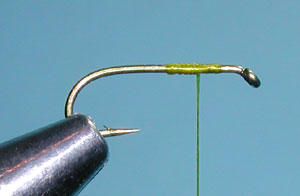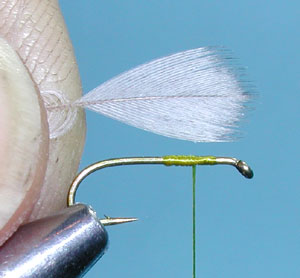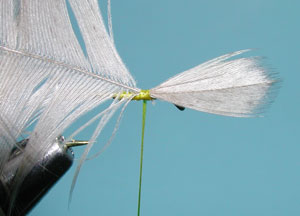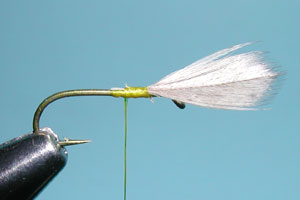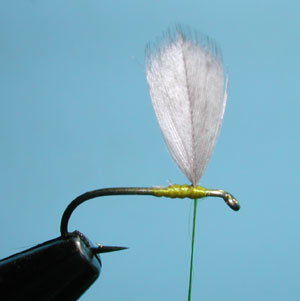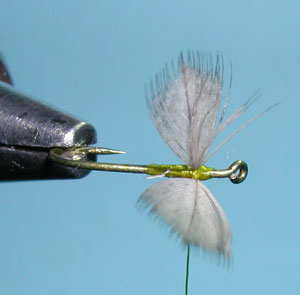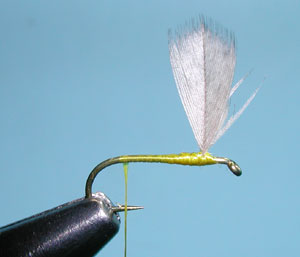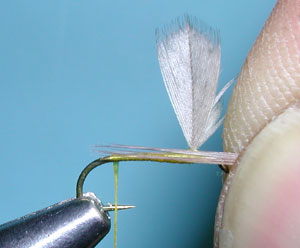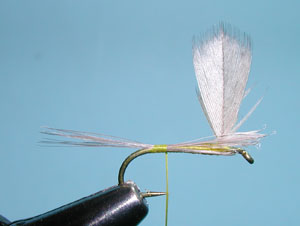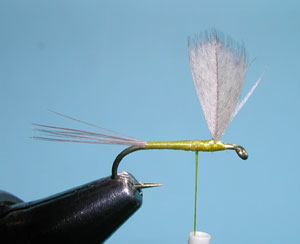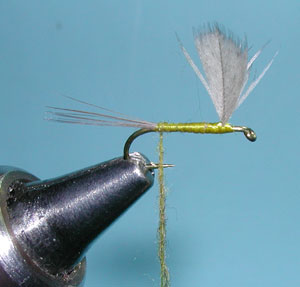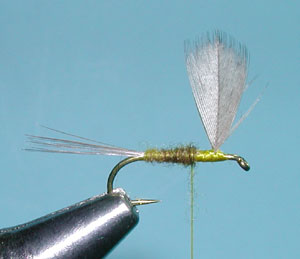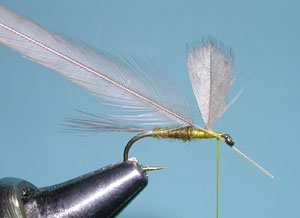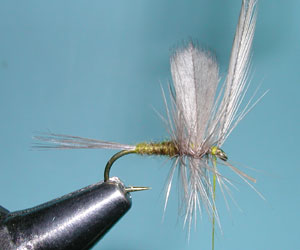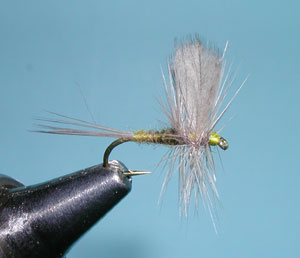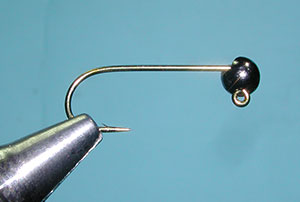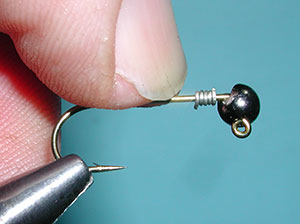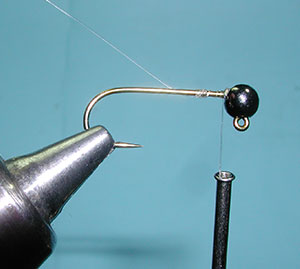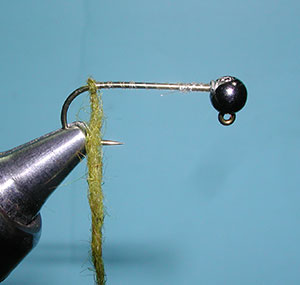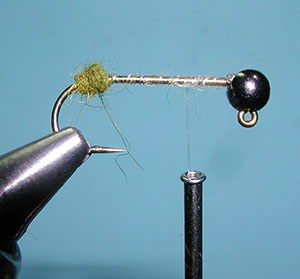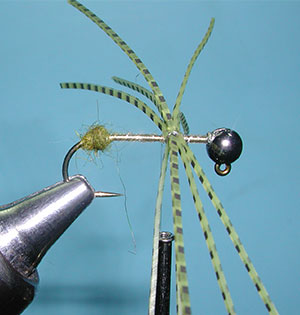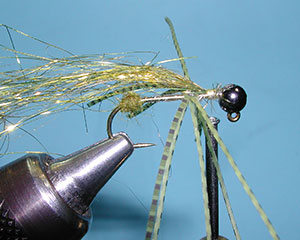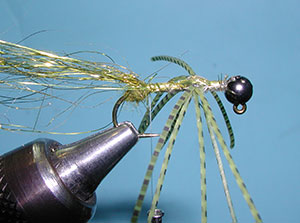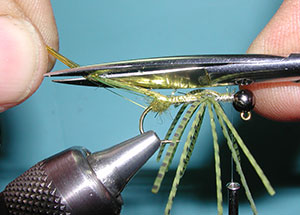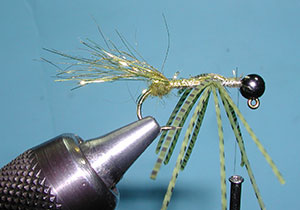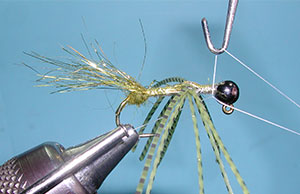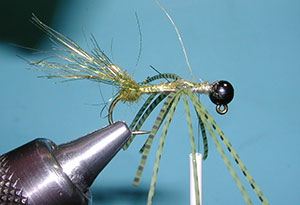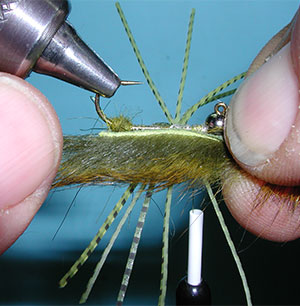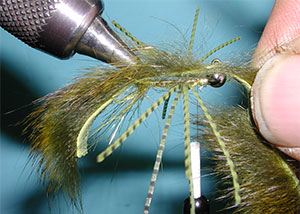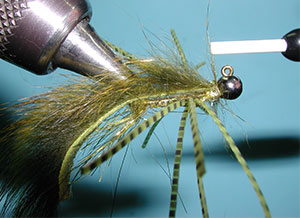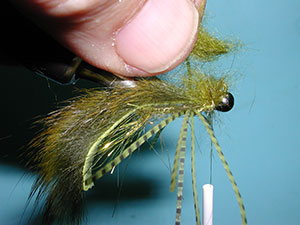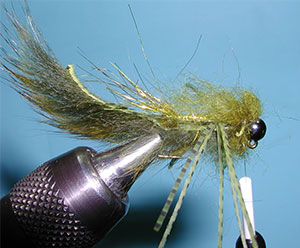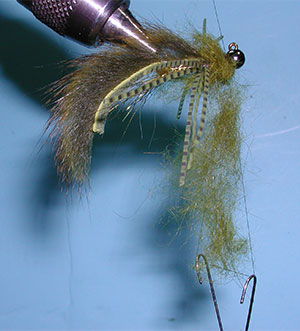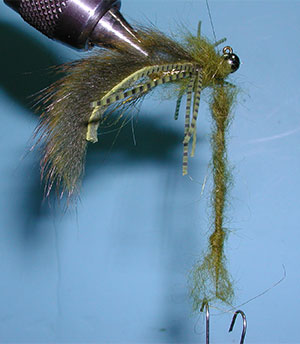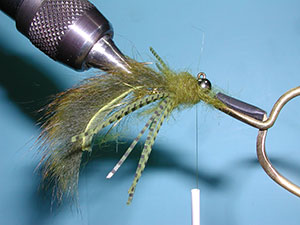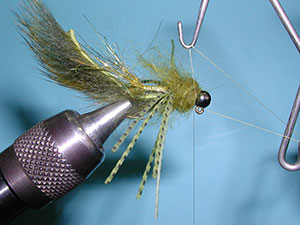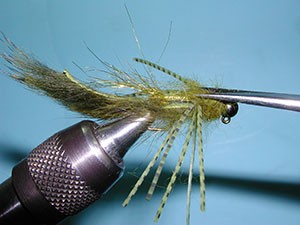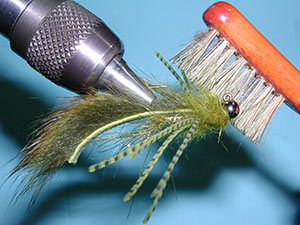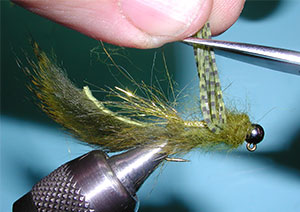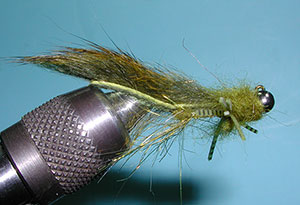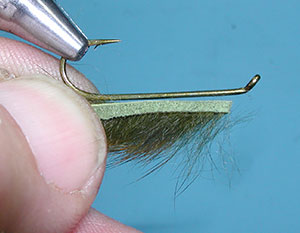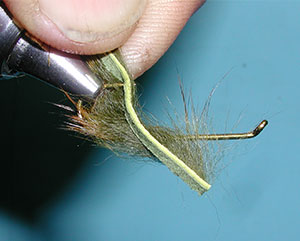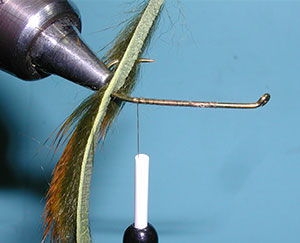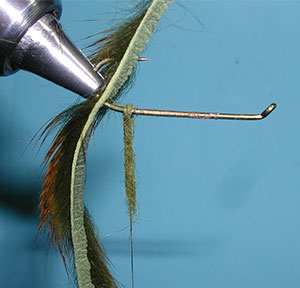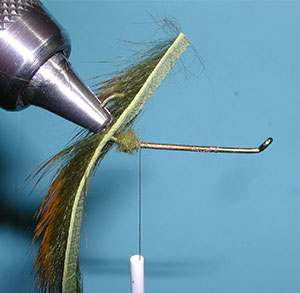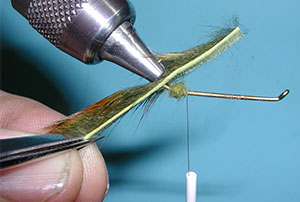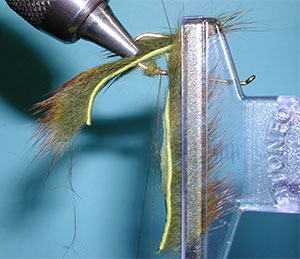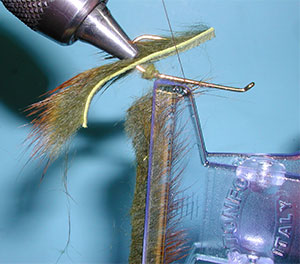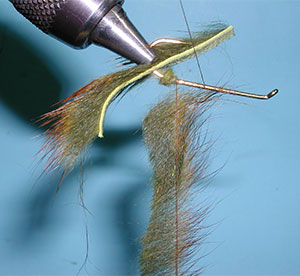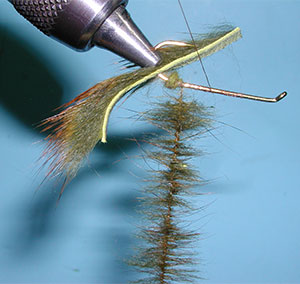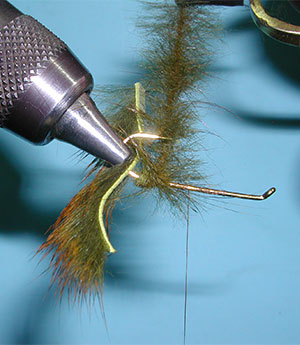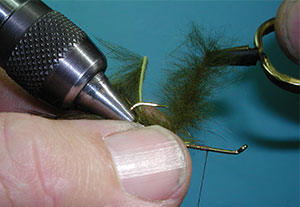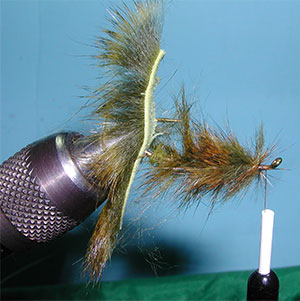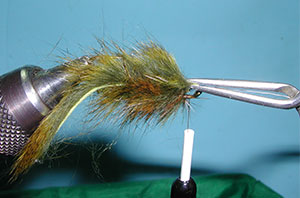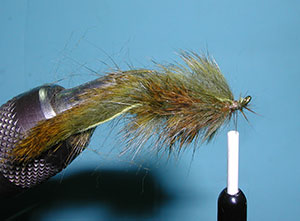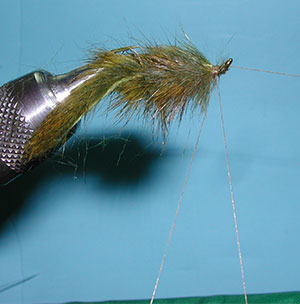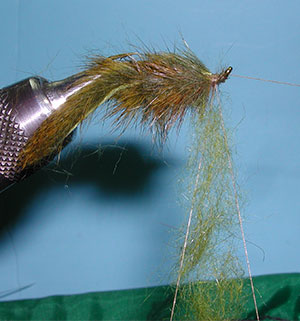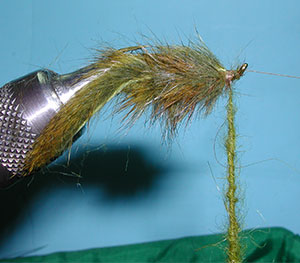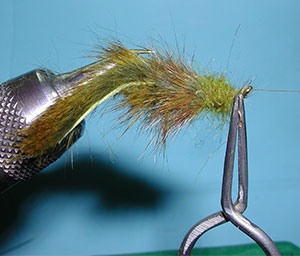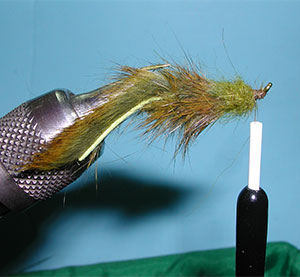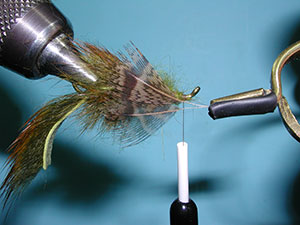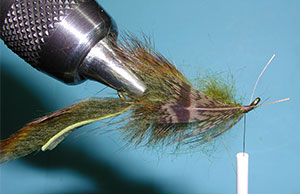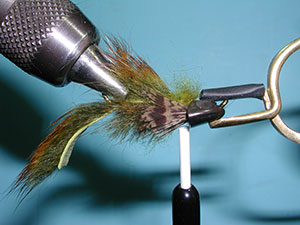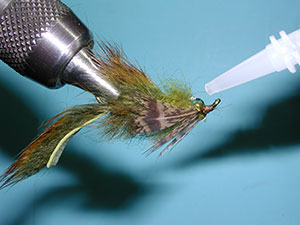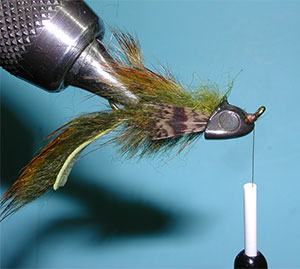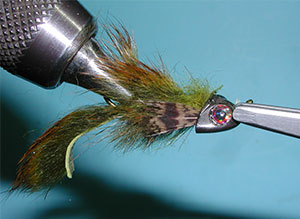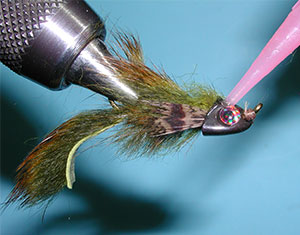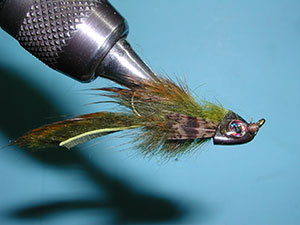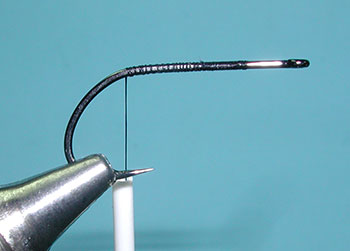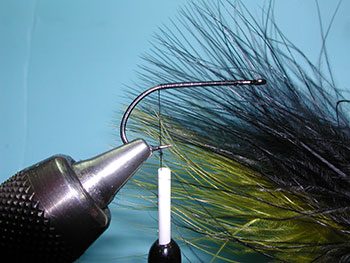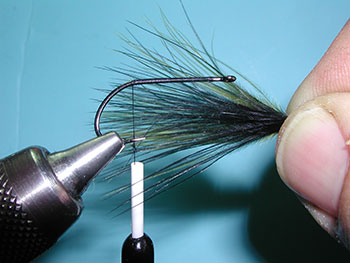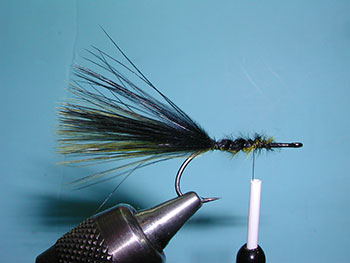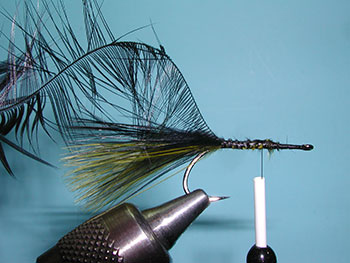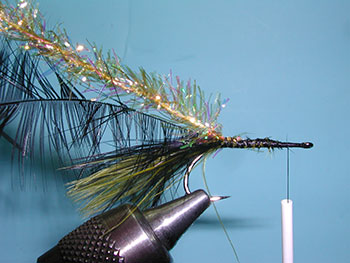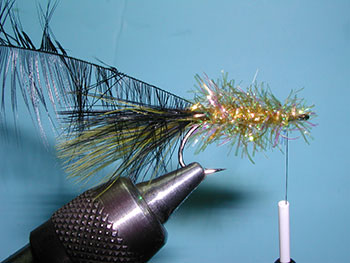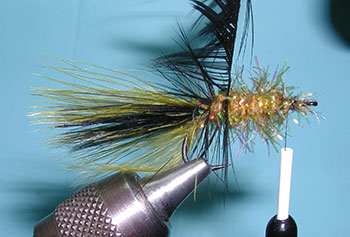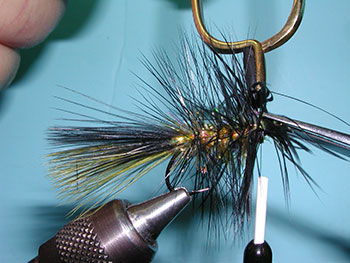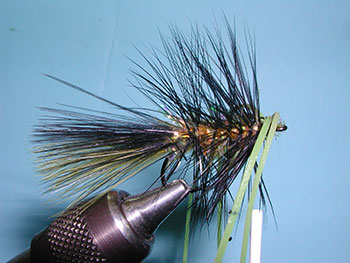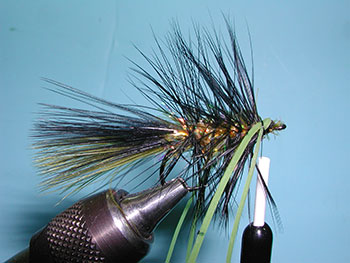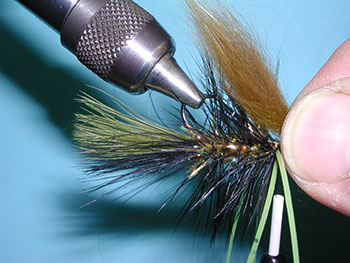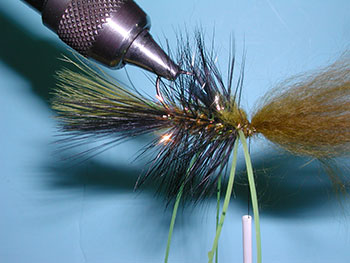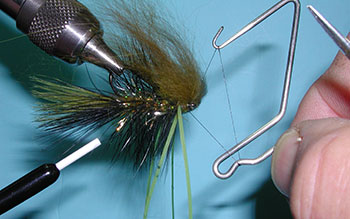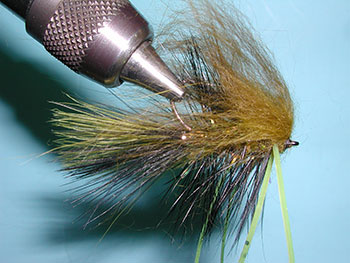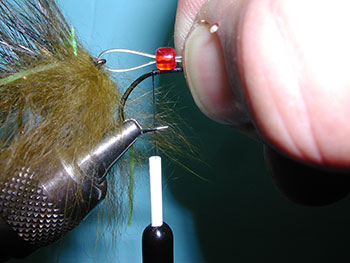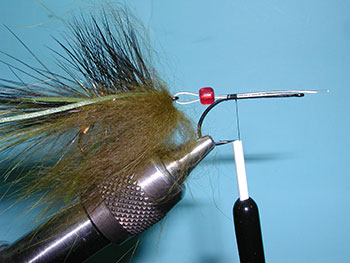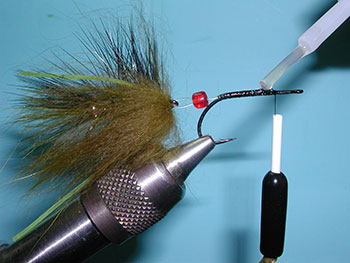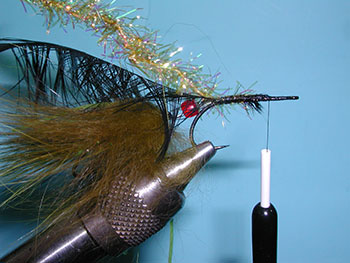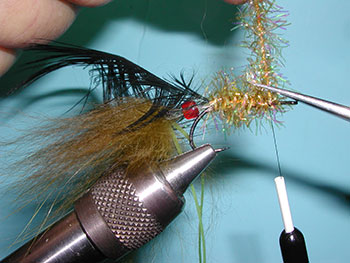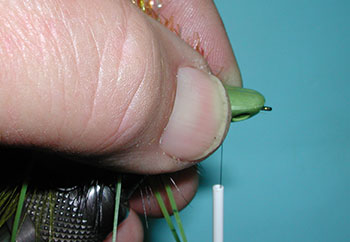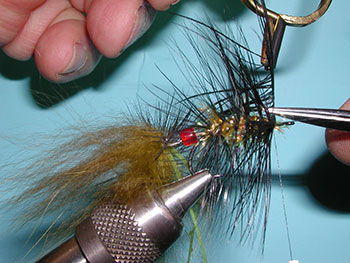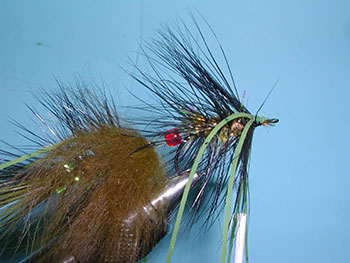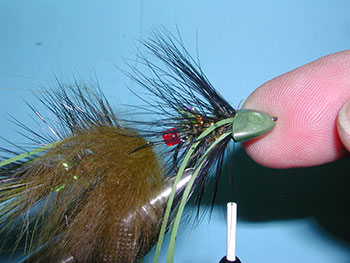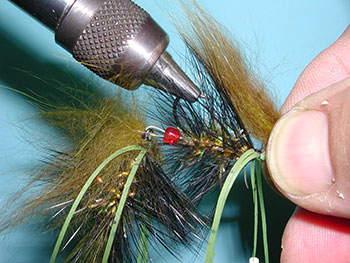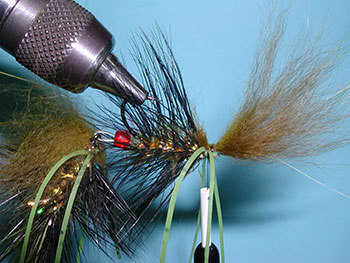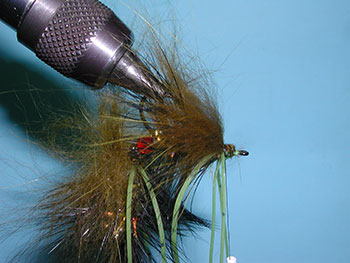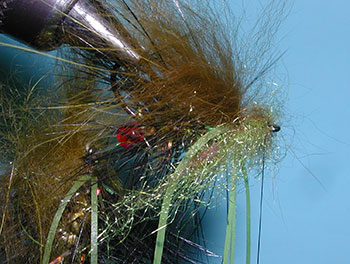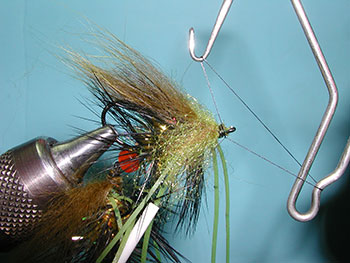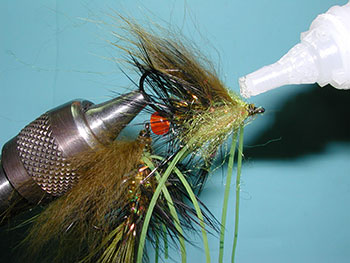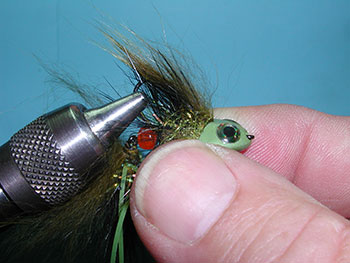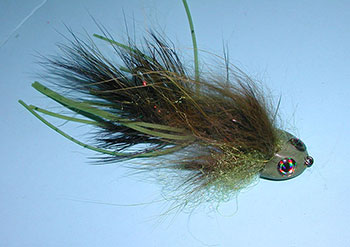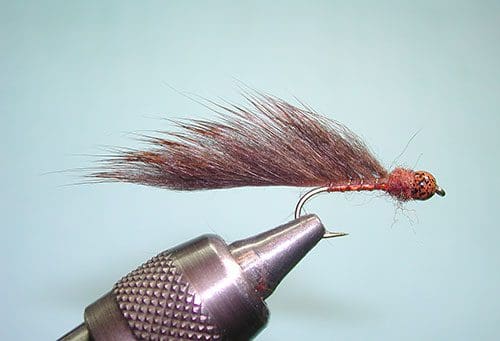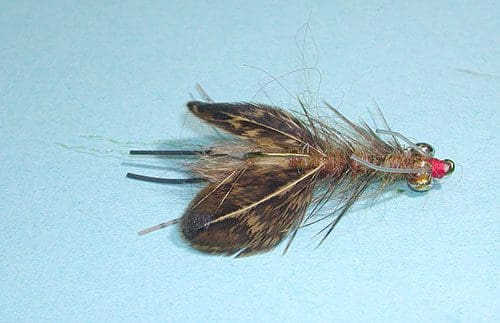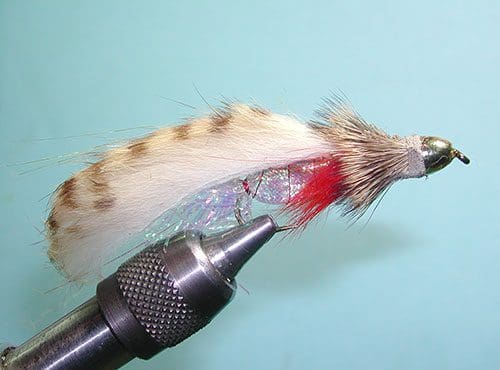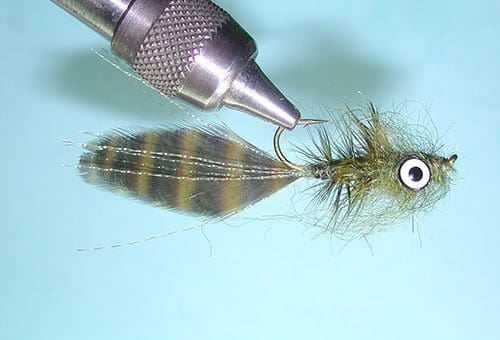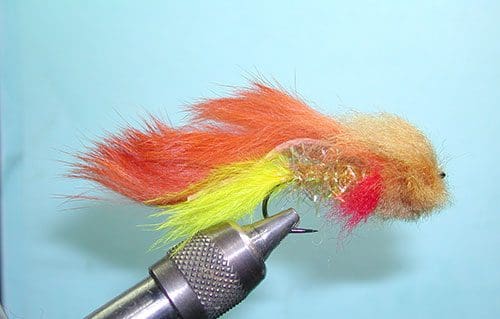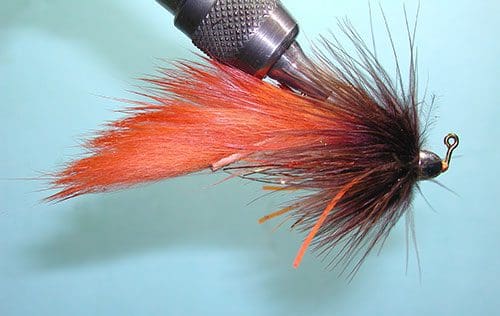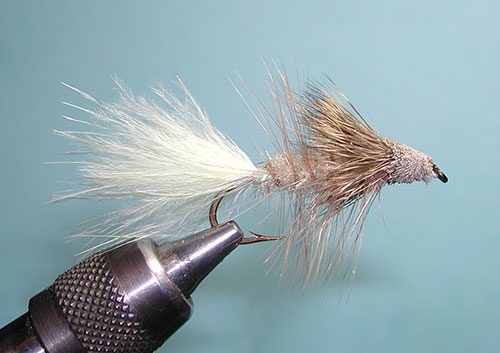Mini Sculpin – a quick dash to the bottom
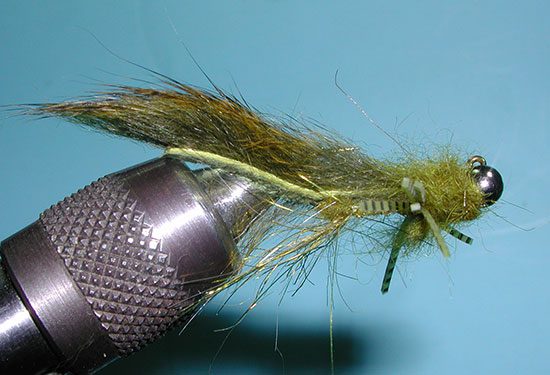

Mini Sculpin
Tying Instructions
| Materials
to Order Material, click the link |
|
|---|---|
| Hook | Daiichi 4660 #8-12 |
| Thread | Danville Monofilament and Uni 8/0 Olive Dun |
| Head | Black Nickel Slotted Tungsten Bead, 5/32 |
| Weight | 0.015 Leadfree Wire |
| Fins | Grizzly Flutter Legs, Black Barred Olive |
| Body | Aussie Possum, Olive |
| Ribbing | Flat Silver Tinsel |
| Tail | Pine Squirrel Strip, Olive |
| Collar | Aussie Possum, Olive |
| Flash | Light Olive Ice Wing |
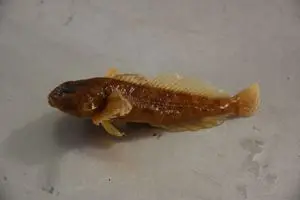
Mini Sculpin
Many Sculpin patterns are tied with Rabbit strips, utilizing a straight strip for a tail and a crosscut strip for the body. However, most of your natural sculpins are less than 1.5 inches and the rabbit strips are just too long and bulky to tie at this size. Welcome to Pine Squirrel! This material can be used with size #6-12 streamer or nymph hooks. The material still has the movement and natural mottled coloration of rabbit and can be used with a lighter rod such as a 4 weight. The patterns usually call for some type of heavy beadhead such as tungsten beads or formed Sculpin Heads marketed by Fish Skulls. Fish Skulls have a mini-size, perfect for these 1.5 to 1.75 inches patterns.
Jig Style Hooks
Many of these patterns are tied onto jig style hooks so that the pattern rides with the point upwards, reducing snagging. The body of the sculpin tapers from fat near the head to skinny near the tail. The Pine Squirrel strip produces this tapered effect and has an undulating effect within the current. Some sculpin patterns use spun deer hair for a head but this material tends to provide flotation to the pattern. Other patterns will utilize spun wool for the head which can be quite heavy and bulky when wet. These tungsten beads or Mini Sculpin heads are a good choice for getting the patterns to the bottom quickly and not create a tsunami wave upon casting.
Sculpins
Sculpins live near the bottom of the stream. They do not have stabilizing air bladders like trout so that they tend to tip up when drifting with the current and tip downwards when swimming. These weighted jig hooks will often produce the same effect.
Up and across casts are very effective with twitches to the line giving the pattern some movement in slack currents. Keep the line in the water with some tension to the pattern, you want to keep slack line to a minimum. Sculpins tend to live within the gentler currents usually within the lower sections of a run or pool. They dart among the rocks as they are not good swimmers. Occasionally, they get washed downstream and trout will be looking for them in drop-offs below riffle sections or transition areas along a gravel bar where fast water transitions to stillwater.
Variations
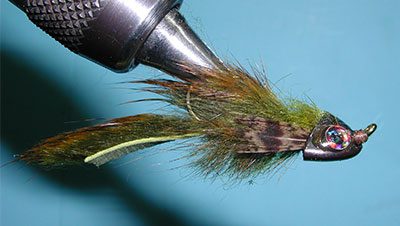
Fishskull Helmet Mini Sculpin, Olive
Tying Instructions
| Hook | TMC 5263, sizes 6-10 |
| Thread | Danville Dark Brown 6/0 |
| Head | Mini Sculpin Helmet |
| Tail | Pine Squirrel Zonker Strip, Sculpin Olive |
| Body | Pine Squirrel Zonker Strip, Sculpin Olive |
| Fins | Small bunch of Dyed Partridge, Olive Dun |
| Collar | Aussie Possum, Olive |
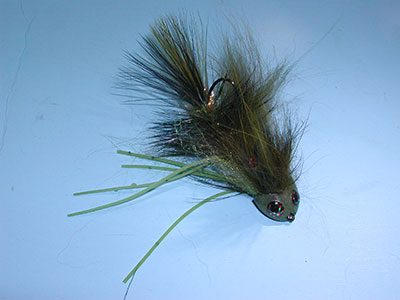
Mini Headbanger
Tying Instructions
| Hook | Gamakatsu B10S, #8 |
| Thread | Veevus 10/0 Black |
| Head | Mini Sculpin Helmet |
| Tail | Black and Olive Marabou |
| Body | Pearl Olive Estaz Chenille palmered with Black Schlappen Hackle |
| Legs | Small bunch of Crazy Legs, Olive/Black Flake |
| Collar | Light Olive Mottled Nymph Blend |
| Overwing | Arctic Fox Body Fur, Olive |

